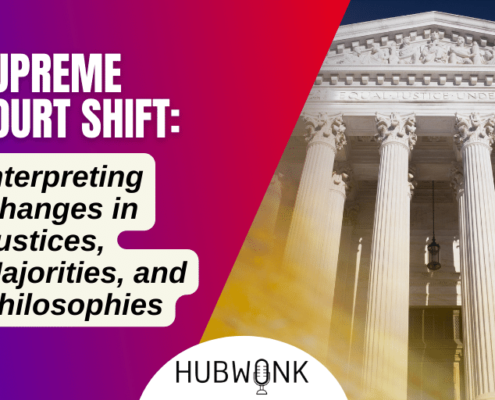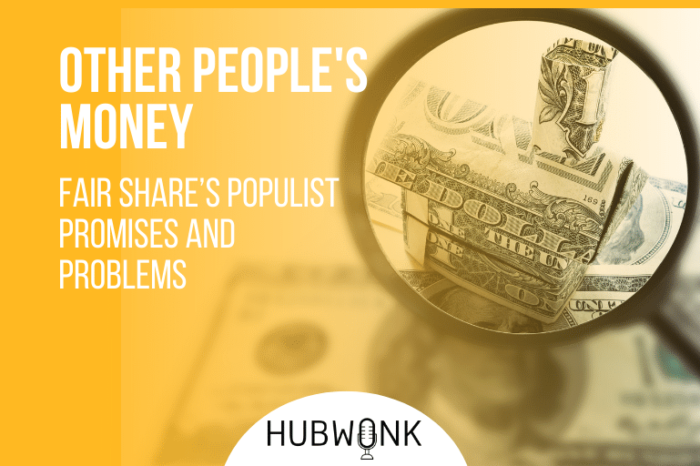Other People’s Money: Fair Share’s Populist Promises and Problems
/in Economic Opportunity, Featured, Podcast Hubwonk /by Editorial StaffThis week on Hubwonk, host Joe Selvaggi talks with Boston Globe columnist Jeff Jacoby about November’s Massachusetts Ballot Question 1, the so-called Fair Share Amendment. They examine both the merits and timing of a graduated state income tax, as well as the effects on society of creating separate categories of taxpayers, and the dangers of setting the many against the few. Related: The Boston Globe: “Millionaires tax is unwise and unworthy”
Guest:
 Jeff Jacoby, who has been a columnist for The Boston Globe since 1994, is a conservative writer with a national reputation. A native of Cleveland, Jeff has degrees from George Washington University and from Boston University Law School. Before entering journalism, he (briefly) practiced law at the prominent firm of Baker & Hostetler, worked on several political campaigns in Massachusetts, and was an assistant to Dr. John Silber, the president of Boston University. In 1999, Jeff became the first recipient of the Breindel Prize, a major award for excellence in opinion journalism. In addition to his columns in The Boston Globe, Jeff writes Arguable, a weekly, email opinion newsletter.
Jeff Jacoby, who has been a columnist for The Boston Globe since 1994, is a conservative writer with a national reputation. A native of Cleveland, Jeff has degrees from George Washington University and from Boston University Law School. Before entering journalism, he (briefly) practiced law at the prominent firm of Baker & Hostetler, worked on several political campaigns in Massachusetts, and was an assistant to Dr. John Silber, the president of Boston University. In 1999, Jeff became the first recipient of the Breindel Prize, a major award for excellence in opinion journalism. In addition to his columns in The Boston Globe, Jeff writes Arguable, a weekly, email opinion newsletter.
WATCH:
Get new episodes of Hubwonk in your inbox!
Read a Transcript of This Episode
Please excuse typos.
Joe Selvaggi:
This is Hubwonk I’m Joe. Selvaggi
Joe Selvaggi:
Welcome to Hubwonk, a podcast of Pioneer Institute, a think tank in Boston. For the past 100, six years, Massachusetts residents have agreed that a fair state income tax is a flat income tax. Indeed, when voters were given the choice in five attempts to create a graduated tax. First in 1962, 68, 72, 76 and 1994, they agreed that any future tax change would fall to fellow Bay State taxpayers equally. This November, a new attempt to impose a graduated income tax will be before voters as ballot. Question one, the so-called fair share amendment, which would oppose a 4% Sur tax on income over $1 million. The ballot supporters have offered voters assurance that the $2.1 billion in new revenue would go to improve the state’s education and transportation systems. Opponents of the amendment warn that beyond testing are abiding sense of fairness. A tax on high earners may have many unintended consequences and therefore deserve serious scrutiny.
Joe Selvaggi:
Voters deserve to know if the Commonwealth needs new revenue at a time when it’s tax proceeds have already far exceeded budget estimates, whether the legislature must use the money to fund education and transportation as promised who will pay the new tax and what will be the effect on all of us in the Massachusetts economy, when an 80% marginal tax increase is imposed on our cop earners. My guest today is Boston Globe columnist Jeff Jacoby, whose column last week, entitled “Millionaires tax unwise and unworthy,” characterized Question One as a terrible proposal. While Mr. Jacoby’s readers may be unsurprised by his characteristically jaundiced conservative view of new taxes, they may be intrigued by his words of concern for the Amendment’s effect on our state’s culture. Whereas the debate over the size and role of government had historically equated to a shared burden of cost for all.
Joe Selvaggi:
Mr. Jacoby sounds the alarm over the societal effects of attacks that targets high earners as an act of naked class warfare. Indeed, he quotes the amendments sponsors that quote more than 99% of residents won’t pay a penny towards fair share taxes as exhibit one for his class warfare case. Jeff will share with us his views on the merits of question one, as well as his concerns about the growing strength of the populous sentiment that scape goes high earners and sets taxpayers against each other, serving to further shred the fabric of our communities. When I return, I’ll be joined by Boston globe columnist, Jeff Jacoby. Okay. We’re back. This is Hubwonk. I’m Joe Selvaggi, and I’m now pleased to be joined by Boston Globe columnist and Hubwonk listener favorite Jeff Jacoby. Welcome back to Hubwonk, Jeff.
Jeff Jacoby:
Joe, it’s always good to talk to you always good to talk to our listeners.
Joe Selvaggi:
Wonderful. Well, we’re gonna talk today about an issue that we’ve addressed in, in different ways on hub won. It’s question one our listeners will face it in the November election. It’s sometimes called the fair share amendment. It’s a an amendment to the Massachusetts constitution that’s been proposed that will impose a 4% surtax on all income above a million dollars. You wrote about this in a column this past week laying out your objections. I think your, your exact words, you, you called the tax a terrible idea. You offered a couple of reasons. So I want to develop the idea from there. Let’s start with your reasons, and then we’ll go a little bit further if we have time and, and talk about what this means essentially to what you assert is class warfare. So let’s start at the beginning and say this is a tax that its advocates say will go to education and transportation, both good things. It may raised as much as 2.1 billion as, as the original estimate. Let’s start with 2.1 billion. Does Massachusetts need 2.1 billion in new tax revenue?
Jeff Jacoby:
Well, considering that the legislature just passed a budget for the forthcoming fiscal year what was it? 53 billion, I think was the amount
Joe Selvaggi:
More than a billion a week
Jeff Jacoby:
Far and away. The biggest budget in Massachusetts history. You know, I’ve lived in Massachusetts now for several decades, been following and writing about state politics for most of that time. And I remember when a 20 billion budget was considered shocking. And now here we are at 53 billion. And on top of all this money that’s already designated to be spent. They still have billions of dollars left over. There’s been so much reporting over the past couple years, about how contrary to everyone’s expectation, the COVID pandemic, didn’t plunge the state into didn’t plunge, state government into poverty and penury, it somehow seemed to have, seems to have resulted in making the statea more lucrative concern than ever before. Money has been pouring in to the treasury. And there’s now currently something like $3.6 billion of surplus unspent funds that Beacon Hill still has to figure out what, what it’s gonna do with so does the state need more money? You know, hell no, the state’s got more money than it knows what to do with already. So anyone who, who begins making a case for raising a tax by saying Massachusetts is in dire straits, and it needs to get more tax revenue right off the bat, they’re just blowing smoke
Joe Selvaggi:
As indeed. It was pioneer just came out with a, a piece today talking about a, I don’t know if you’re up on this a 1986 law that was passed that imposes limits on how much the state can spend. And in fact, what that law requires is if it exceeds that much money in revenue it has to give it back. So pioneer just released today, something that about the fact that the state is likely to need to give back $3.2 billion back to taxpayers for excess revenue.
Jeff Jacoby:
Yeah, but don’t, don’t don’t count your, your tax refund until you actually get it. Massachusetts legislators and legislator leaders are probably working around the clock now before the July 31 deadline when the legislature’s supposed to go out of session to come up with some way to prevent that law from going into effect. But yeah, this is one of the, one of the legacies of the, the late great Barbara Anderson you know, who was the head of CLT, citizens for limited taxation. And I should say, you know, a great friend of mine and many other people for many years, by the way, Barbara Anderson was, and CLT were among those who led the fight against the last attempt to impose graduated income tax rates in Massachusetts, that was back in the mid 1990s voters defeated it then as they have always defeated it when it’s been on the ballot. And the question is whether they’ll be prepared to do the right thing and defeat it now that they have a ch a chance for the sixth time to vote on
Joe Selvaggi:
It, indeed, no causes ever lost, cuz no causes ever permanently won. So the, the fight goes on. Now the, the, the case that the advocates make for this new tax, regardless of whether it’s needed right now is we value education and transportation. And we wanna earmark this money for those purposes. Does this tax require the money to be spent in those areas added to, well,
Jeff Jacoby:
The advocates are making a, a couple of different pitches. There’s that one let’s get money for education and transportation because as we all know, Massachusetts doesn’t spend nearly enough on the MBTA and the public schools system, and, you know, the, the public the public unions that run the M BTA and the public schools insert major sarcasm emoji here. Those are such heavily funded operations. There’re also making an argument, which I assume will, you know, will, will, will also talk about that there’s a fairness question, that there’s an equity question that people who make a million dollars, aren’t paying their quote unquote fair share. And I would argue that that’s actually a bigger piece of their pitch and a even even more dishonest aspect of their argument, but on this specific question about money for education or money for transportation the proposed amendment.
Jeff Jacoby:
And by the way, we’re not talking about a statute, this isn’t, this isn’t a law that will go along with the regular books on the statutes, on the law books that can be repealed at any time. This would be an amendment to the, the state constitution. It would, it would change something that has been in the Massachusetts constitution for well over a century. The provision that te that income of a given class has to be taxed at a uniform rate. There cannot be higher rates for higher levels of income. And it would, and it says that the money that would be raised if this tax increase is approved subject to appropriation by the legislature will be spent on education and transportation. But that’s a loophole that completely consumes you know, the entire animal subject to appropriation is just another way of saying if beacon hill wants to, it can spend the money that it, that it reaps from this tax increase on education transportation, but there is absolutely no requirement that it has to, and since dollars are fungible, there’s no requirement that it wouldn’t be able to simply say, well, the money that we’ve been spending on, on public transportation and public education, we will now say, has actually come from the revenue from this tax increase and just simply shift the label of where that revenue came from.
Jeff Jacoby:
But bottom line, it guarantees nothing. And in fact, when there was a case there was litigation before the Supreme judicial court was that a year ago, two years ago, when an earlier attempt was made to put this on the ballot. And the chief justice asked the advocate for the tax increase whether they were guaranteeing that money raised by this would be added to what is currently spent on, on education transportation and the lawyer acknowledged no, there is no such guarantee. So whatever the ad advertising may say whether or not the newspapers get around to, you know, fact checking it. The fact actually is it doesn’t guarantee anything. The legislature could decide you know, to spend more, to spend less, to spend exactly the same to spend nothing at all, nothing is chiseled in stone. And by the way, when they talk about education and transportation I think, you know, we all know this, but I think it’s worth saying out loud, they’re not talking about private education.
Jeff Jacoby:
They’re not talking about parochial education. They’re not talking about money for homeschooling parents. They’re talking about money for education, which is dominated by the teacher’s union. And when they talk about transportation, they’re not talking about money to make it easier for people who don’t have cars to get them or ways to make automobile transportation, which is far and away the most popular form of transportation in Massachusetts to make it more com comfortable or more convenient. Again, they’re talking about public transit, you know, mass transit, the kinds of things that the unions are interested in controlling, not necessarily what Massachusetts residents would be interested in.
Joe Selvaggi:
Indeed. So it’s a, a blank check. Even if it’s spent on the, you know, the places where it’s supposed to allege or promise to be spent is being spent on, as you say, public government run schools and government run transportation, not transportation and not education in general, right. That’s an important point. I think our, our listeners should, should latch onto one of your other points that you made in your article, I think was very very useful. And something we’ve covered also is the unintended effect of attacks like this is to encourage those people who are Footloose, who can move to in fact move. These are people who are high earners often and they are Footloose. They can choose to work, particularly in this age of zoom from wherever they like, they can start their companies from wherever, like, say more about why you think it’s possible that though we we expect 2.1 billion from this tax as actually come in much lower owing to the fact that many people will just simply choose to leave the state.
Jeff Jacoby:
People have more freedom now to live and work where they want to than they’ve ever had before. I’ve written in the past about the ongoing Exodus from Massachusetts. You know, when the states are ranked by which ones have the most number of people move into them, and which ones have the most number of people move out of them Massachusetts for years now has been in the top five, or certainly in the top 10 of states that citizens choose to leave. There’s been the steady Exodus of people from Massachusetts, the, the states where they, where they go to more than any other are two New Hampshire and Florida. I think something like, I forget what the exact amount is, but I think in, in 2019, the amount of income represented by the people who moved out was something like $2.6 billion, $2.6 billion of income that otherwise would’ve been taxable within Massachusetts, that left with those people.
Jeff Jacoby:
And if I’m not mistaken, something like 70% of, of the people earning that money going to either New Hampshire or Florida. And I asked in my recent column, what do those two states have in common? It can’t be the weather, you know, Florida and, and New Hampshire, you know, are it can’t be Disney world? It can’t be proximity to Massachusetts because while New Hampshire is just up the road, Florida is pretty far away what those two states have that sets them apart from, you know, from most others is that they don’t tax income. There’s no income tax in those two states and only three others. I forget what the three others are. One of them is Alaska. I forget what the, what, what the others are, but the, that, that’s the biggest thing. New Hampshire as well. If I doesn’t have a sales tax as well,
Joe Selvaggi:
That says a Nevada thing
Jeff Jacoby:
That could be. So when people, you know, most people, most of the time stay where they live. I think we can acknowledge that, but there is a certain, a certain share of the public, which if you make it work, their while to move will do so. People move all the time for all kinds of reasons. They move to go to college, they move to get, you know, to take a job. They move to retire. A lot of people wanna live somewhere else when they retire and people will move for financial reasons. And if you tell people, guess what you are now gonna be subject to an 80% tax increase on, you know, this amount of your income, which you had never been subjected to before, but only if you stay in Massachusetts, if you move somewhere else, you’ll be, you’ll be free of that.
Jeff Jacoby:
Everybody won’t move, but you know, some significant number will. And I think if you look at other states with, with crazy high tax rates, Connecticut is a good example. There’s been a flood of people and money that have moved out of those states. I remember writing one time when I think maybe was LeBron James, I forget which you know, which NBA superstar moved to moved to Florida. I, I might be getting this slightly wrong, but I remember comparing the tax rates of the state, where he had been living to the state that he was moving to. And, you know, that was per persuasive to me, if you’re gonna be reaping those tens of millions or hundreds of millions of dollars it’s well worth it to you to, to be you know, to be going to a state where, where they’re not gonna take as big a bite out of you. We’re not talking about people making that kind of money in Massachusetts, but even still, you know, for some of us, I mean, I wish that I were making a few million dollars a year. That would be lovely. And if I were, I would not wanna be sharing even more of it, a Commonwealth, Massachusetts,
Joe Selvaggi:
Indeed. And many of my friends on the, on the left believe in things we call ’em pian taxes, things you tax that you don’t want people to do. We, they think we tax cigarettes and alcohol people drink and smoke less, or maybe even gas they’ll drive less. If we tax it more, they’ll even accept that if we have a 5 cent fee on grocer bags, people will reuse their bags. So 5 cents on a $50 bag of groceries is enough to incentivize someone to reuse a, get a bag, but an 80% increase in income will not encourage them to move. It’s. You know, to me, it’s very difficult to understand how you can hold those two truths.
Jeff Jacoby:
As as Hillary Clinton once said, that requires a willful suspension of, of, of disbelief mean to be able to see that taxing cigarettes or taxing alcohol will reduce purchases of alcohol with cigarettes, but not to be able to see that taxing higher incomes will either reduce the amount of people earning those incomes or the amount of people willing to sit around and pay those taxes. I don’t, I don’t understand people do have a great capacity to believe things that are contrary to fact when it’s in their ideological or their financial interest to believe it. But, but your, your friends on the left and, you know, my friends on the left feel the same way. I don’t understand it.
Joe Selvaggi:
What I love about your calm though, for me, the most salient point is that I think when people hear the term millionaire, they imagine, you know, Scrooge McDuck on the back of his yacht TWI and his mustache and splashing through the, the gold balloons. But I don’t think they understand really who this tax reaches we’ve covered on a hub Wonka in the past is roughly only half of the people in this tax bracket are million dollar earners. The, the majority are people who have a one time what we call a liquidity event. They’re selling a a property they’re selling a business. These are everyday people who have saved a lifetime, say more about the profile of the people who are apt to be swept up in a new tax like this.
Jeff Jacoby:
I’m sure that my wife and I are typical of lots of people who bought a house decades ago. In our case, we bought a very dilapidated house in the town of Brookline. And, you know, we, you know, we paid what we paid for. It was, you know, it was, it was a price in the, in the low six figures. The house was truly in terrible condition, but here we are, 25 years later, 27 years later, the real estate market has, you know, has been crazy. Granted our real estate taxes, our property taxes are pretty crazy as well, but if we were to sell our house tomorrow on paper, we would have gained, you know, a, a tremendous amount of money.
Jeff Jacoby:
That’s the one time event that would suddenly show. Wow. You know, I, I qualify as a millionaire granted, you know, there’s a lot of capital improvements and all the rest of it to deduct, but I think it’s things like that, that, that for the most part, are the people who would get hit by this or somebody who’s, you know, who’s run a small business for, you know, for many years and it’s gradually gotten more successful, but he handles the tax, the, the taxation that, you know, the, the taxes for his, or the income from his business through his personal income tax filings. It’s not that he’s living high on the hog as a millionaire, as you say, Scrooge McDuck. And and the guy on the monopoly board with, you know, the gold top cane of the, you know, the twirling mustache this is income on paper, but it’s really, it’s a, it’s an accounting fiction.
Jeff Jacoby:
It’s not, you know, this is not somebody who’s, you know, who’s, who’s reaping tens of millions of dollars every year and, you know, slowly getting away without having to, you know, to pay taxes on it, by the way, although I didn’t mention the column, I think it’s also worth mentioning that the people who do earn large sums of money pay enormous amounts, it’s federal income taxes, granted, Massachusetts, you know, it’s a separate question. What will be on the ballot has nothing to do with federal income tax, but it certainly isn’t as though the highly progressive federal income tax system doesn’t affect them. It does, when you add those two things together, if you are coming to retirement age, you’re ready to sell your business, or you wanna sell the home that you’ve lived in for 30 years, and you’ve seen the value of go through the roof. You might, as one, you know, one correspondent wrote to me the other day, decide that you’re gonna up and move to New Hampshire so that when you do sell your house, you are now a New Hampshire resident, a New Hampshire taxpayer in Massachusetts, won’t be able to get its, you know, its clause into that money.
Joe Selvaggi:
Indeed. I, you know, again, I’ve I spent life certain part of my life as a financial advisor. And I, I, I just say for our listeners, particularly those who may have pensions that may enjoy money.
Jeff Jacoby:
Oh, good point, good point
Joe Selvaggi:
Into retirement. I’d say what we used to tell clients is for about every million dollars you have in your nest egg, you can withdraw in retirement about $35,000. So if you have a six figure pension, that’s equivalent to about a $3 million quote unquote nest egg that you would’ve masked over your time. So when you look at those other people, those millionaires and you sit on your pension, you say, I’ve got a, you know, six figure pension, you have the equivalent with $3 million nest egg. But your pension is not hit with a 9% marginal tax rate. You get to enjoy that if this is passed, whether it’s passed or not. So your counterpart in the private sphere who may have, as you say, script and safe for decades I used to be in that community. I was an entrepreneur. You defer a lot of income for that final liquidity event. If that liquidity event no longer is as lucrative as, as it needs to be. You may never start the business or you may, as you say, take your business elsewhere. So this is real consequences for real people, not quote unquote millionaires,
Jeff Jacoby:
Or you may leave the financial services industry and move into podcasting
Joe Selvaggi:
Podcasting, the really lucrative, no, that’s, that’s how I can afford to have have these great conversations with you, Ja you know, so the arguments for the advocates that say look someone you know, whether you’re they’re the corner business owner, the bodega owner or not, if they’re making a million dollars, they can afford to pay taxes more readily than someone who makes $50,000, who, who has to use it for diapers and baby food. And, and just getting by surely you won’t say that someone who has a million dollars in income in a year, isn’t better equipped to pay that tax and someone who doesn’t, what would you say to critics like that?
Jeff Jacoby:
Well, I made a couple of points in my column. One was how did I put it, those who make a million dollars or more are earning 22% of the income in Massachusetts and they’re paying 24% of the income tax collected Massachusetts. I’m not even sure if that includes capital gains, which Massachusetts taxes at a much higher rate, so that there is a whole separate class of income typically earned by those who are more well to do, which is tax at a much higher rate. But to me, there’s a, there’s a, there’s a, a more pressing point, which is that there’s something fundamentally immoral about saying you may be paying the share of, of income tax that the state requires. You may be paying a proportional share from your income, that someone who makes much less pays at a much, you know, at a much smaller degree from their income, you might even be paying somewhat more than the share as a group than you’re actually earning.
Jeff Jacoby:
But nevertheless, you are making more than most people. Therefore, there’s nothing wrong with our raising taxes on you. And, and I just find something deeply offensive about the idea that because there’s somebody else who’s making more money, therefore it’s somehow appropriate to say, to tell, to tell other voters as one of the liberal groups advocating for this thing did in, in a press release a few days ago, which by the way, was what prompted me to write this thing. 99% of Massachusetts taxpayers will never have to pay this tax. 99% of you will never be touched by it. We’re only going after the 1% or the less than 1%. And this is, I mean, really this is no different from the argument that we’ve heard over and over and over again in recent years from the likes of AOC and Bernie Sanders and Elizabeth Warren the attacks on the millionaires and billionaires.
Jeff Jacoby:
I mean, you can almost hear Bernie Sanders’s, you know inflection in a millionaires and billionaires. <Laugh> the idea that because somebody has been successful, therefore it’s appropriate to whip up public sentiment against them. I always just find so, so distasteful and so inappropriate and, and at a fundamental level immoral. And really this is, this is, this is one of the most ancient temptations. You know, I mean the 10 commandments calls it coveting to covet someone else’s property, really, because you wish you had it, that that’s not an act of. That’s not a, that’s not a phenomenon of social justice. That’s not a phenomenon of equity. That’s a phenomenon of greed and envy and the kind of thing that decent people ought to try to repress it themselves. And just as you wouldn’t think it was appropriate to say it about your extra neighbor, whom you know, well, who happens to have a really nice car to say that he ought to be willing to let you borrow his car at least one day a week, because honestly, you know, he, he doesn’t need to use it seven days a week just as that would be ridiculous.
Jeff Jacoby:
I think it’s equally inappropriate and ridiculous to be saying it about people who because they’ve been successful. Let’s just say that this is about people who make a lot of money that therefore they’re, they’re morally obligated to pay a lot more and we’re not morally obligated, you know, to respect their, their success. The Massachusetts constitution made a point of saying income should be taxed at a uniform rate precisely to obviate this kind of mindset precisely to prevent class warfare precisely in order not to encourage the majority to run rough shot over the minority. And I think it would be a great mistake for us to, to back away from that.
Joe Selvaggi:
I, I, I, I, I tend to agree. I think this is a political move, known time and Memorial that nobody wants to pay more taxes. So any politician who advocates hire taxes, doesn’t keep his job very long. So he quickly learns if I divide the electorate into groups and tax only one portion of the electorate, each time I can win by getting the favor of the majority who are getting the benefits and not paying the taxes. So that that’s an unfortunate, that’s, that’s I think a, a political reality. What I think what you’re saying, I agree. You talked about at least a few deadly sins involved here with this particular tax, but for my money, I think it’s not just, it’s a natural human emotion to, to be envious. But it seems to me un-American, I think we, we had historically celebrated people who take chances and succeed and, and something’s creeping into our society that that’s changing that.
Joe Selvaggi:
Well, my example of the person making relatively low income, having a, a higher marginal propensity to spend, they, they need to buy food and gas. A higher income person has a higher propensity to invest and save. And that’s ultimately where all our prosperity comes from. Americans work hard, historically work hard, but the real reason we where prosperous country is not cuz Americans work harder than people in other places in the world is that we invest better. We take more risks and we get rewarded for those risks. So I think ultimately the golden goose is there. I think most Americans appreciate, we don’t wanna demonize our, our risk take.
Jeff Jacoby:
I hope I hope you’re right. You know, I mean, when you say most, I would’ve agreed with you for sure. You know, 20 years ago or 15 years ago. I, I wonder now after the whole occupy wall street movement, after the, you know, the phenomenal appeal that people like Bernie Sanders had during you know, recent presidential campaigns, when you see so many people, especially young voters, flocking to him, do most Americans really feel like that? I, I don’t know, but I hope so. I guess, I guess this ballot issue campaign is gonna be, you know, one of the things that that helps us decide that, you know, it it’s worth, it’s worth noting that while the proponents keep talking about fairness and equity and fair share one of the points that they make all over and over and over again is that the wealthy pay a smaller percentage of their of their income in, they say broadly state and local taxes.
Jeff Jacoby:
They, they pay less of their income. Less of their income goes to cover state and local taxes than is the case for middle age middle income people or lower income people, which is true. If you are a multimillionaire, less of your income is going to, to pay your taxes. All told then is the case for somebody who’s barely scraping by, but that isn’t because of the income tax, at least in Massachusetts, it’s not because of the income tax. As I said, people who make a million dollars or more earn 22% of the income and they pay 24% of the income taxes. The real inequity is in sales taxes and in property taxes, that’s, what’s causing the great, you know, this great Gulf to appear. And if, if the proponents really meant what they say, they meant what they say they mean they would be advocating to reduce or to abolish sales taxes, or maybe to, you know, to, to lower sales taxes for people who are, who are low income, but that’s, that’s not what they’re advocating for.
Jeff Jacoby:
That’s not what they’re clamoring for. They’re clamoring specifically for something that would, that enables them to demonize millionaires, to demonize high income people, which is why one of the conclusions about this that I’ve come to is that this is not at all about fair taxes. It’s about more taxes. That’s what the, what the, what the real impulse is on the left, right from those who are pushing it. They, they’re not interested in, in a fairer state. They’re interested in a state in which more tax revenue was collected, which they can then use for whatever purposes they, they want to use it for.
Joe Selvaggi:
Indeed. It does seem that way. Again, at the top of the show, we talked about the fact that the state doesn’t need it at the money at all. It already is trying to figure out what to do with all the money it already has. So it isn’t animated by some sense of need it’s in something else that’s that’s driving this, this move, and I tend to agree. We can never look into the hearts of, of those who advocate for this, but I, I have to believe you, your, your close to the mark with, with your, your assessment. So we’re getting close to the end of our, our time together. Where can our you know, I enjoyed your column, but I also enjoy your periodic emails, your MIS that you send out, I guess, twice a week. How can our listeners learn more about your your,
Jeff Jacoby:
So I write a column for the globe twice a week, and you can certainly find it@bostonglobe.com. If somebody has trouble finding it, you know, they can certainly send me a note, my email address, Jacobi globe.com, and I’m happy to, you know, to provide my my column to anybody who’s having trouble getting it. I also write a weekly, usually a weekly newsletter called arguable, which I’ve been doing for about five years now. The the URL to sign up for it is, is confusing. And I gotta get that thing fixed changed to something easy, but just, if you just Google Jeff Jacoby arguable, the first thing that pops up is the sign up for it. Or you can go to the Bo you know, to, to Boston globe.com. We look for newsletters, but honestly the easiest way, Google Jeff Jacobi arguable, you’ll get the, the, the link to sign up for for the newsletter that, you know, there’s no charge that’s in addition to my columns for people who, you know, who can’t get enough of my opinions, <laugh> it, it seems to have developed a following. There’s a hundred thousand people who are reading it. So I, I, you know, I, I welcome readers. And again, if anybody has trouble getting any of this stuff, just send me a note, Jacobi, blow.com.
Joe Selvaggi:
That’s wonderful. I I enjoy reading your stuff. And let me also, and again, we’re making plugs for different organizations. I I’ll say this on behalf of pioneer we’re we gratefully you cited some of our research in your column, in the globe. We did aggregate all the research we’ve been doing recently on this particular issue on the fair share amendment. And we we released it in a book recently called back Tochu. So if our listeners are looking for that, of course they know where pioneer is, is pioneer institute.org. Let me also say, I, you know, our listeners, perhaps those on the left might take a step back and say, oh, sure, you guys are free marketers. You you know, matter what the issue you come down on the side of free markets. And I’ll just say, I’m gonna editorialize here and say my advocation or my advocacy for free marketers.
Joe Selvaggi:
It’s not that they make the rich richer. They make, it makes the poor richer. Right? Right. And my, my, my my frustration with government intervention is for the most part, it’s not that it makes wealthy people poor, but in fact, it makes poor people poor. So we, we advocate for free markets because we care about those who have are less fortunate. It invariably benefits those who are less fortunate. I hope our listeners will hear our conversation about this particular amendment and say, listen, ultimately this sort of class warfare will hurt me. The, the person who’s working for a wage, because the person who wants to invest in a new idea is going to take it elsewhere. I don’t know if ultimately, you know, what the takeaway for you is, if, is that will resonate on this whole issue. If you were to wrap it up with a bow,
Jeff Jacoby:
I think you’re right, that there will be some people with good ideas who either won’t invest in them in the first place or will take it away and, you know, invest someplace else. But for me, I think it’s just the, the sheer dishonesty, the envy that’s built into something, calling something, a millionaires tax or a fair share tax. The idea that you go after people who are successful in order to punish them in order to stick it to them. And that you paint that as somehow a good thing that, that, that maybe is mostly, you know, is what bothers me the most about all of this.
Joe Selvaggi:
Yeah. The irony of calling designating certain people, certain money, good, and other money bad, or, you know, deserving of a surcharge. And, and then labeling that fair share is, is just, you
Jeff Jacoby:
Know, if, if we have one minute to, to just send this thing for a second, among those who are pushing, this are many of the public sector unions, who’s, I mean, there’s the whole separate issue. We can do a whole, you know, a whole separate show on it. I’ve written about it. A bunch of times, public employees, which you know, is the most heavily unionized sector of the economy today tend to get the most you know, high pay lavish benefits in many cases far beyond anything that people who work at the private sector, you know, can ever expect to see for themselves. You never hear them talk about reducing those or, or penalizing those or taxing, you know, taxing those benefits going after public sector union benefits and pensions, because, you know, they are the you know, they are the most lucrative and, and, and the most lavishly funded in the economy.
Jeff Jacoby:
It’s always somebody else’s success that, you know, that people wanna punish. And I, you know, I’m, I’m with you when, when it comes to, to celebrating market economics and freedom of choice and the ability of people to work hard and try to succeed and not punish them for doing so, a fair tax by all means the Massachusetts constitution says everybody should be taxed at the same rate. That means that if you make a, and the rate in Massachusetts is 5%, you make a hundred dollars, your taxes is five. You make a million dollars or, or a hundred million dollars, your taxes, $5 million. That’s fair. But to say that because somebody is more successful, therefore they should be hit even harder, you know, kicked, you know, even more fiercely, have an even bigger bite taken out of them just to prove that we can do it to them. And because 99% of people will never have to pay it. There’s something deeply immoral about that. And I hope Massachusetts voters won’t, won’t succumb to it. They never have in the past. You know, let’s let’s hope their good judgment in good sense is still intact.
Joe Selvaggi:
Indeed. we vote, we, our voters have faced this five times. It depends on how you count it or six times in the past, and it’s gone down to defeat in all cases. We’ll see what happens in November. So thank you very much for taking your valuable time. Thanks for your great editorial, your little op-ed pieces opinion pieces. They’re wonderful. I enjoy ’em every time. Keep up the good work.
Jeff Jacoby:
Thank you, Joe. Great to talk to you.
Joe Selvaggi:
This has been another episode of Hubwonk, a podcast of Pioneer Institute. If you enjoyed today’s show, there are several ways to support Hubwonk and Pioneer Institute. It would be easier for you and better for us. If you subscribe to hub won on your iTunes podcast, catcher, if you want to help make it easier for others to find us, it would be great. If you offer a five star rating or a favorable review, we’re always grateful. If you want to share Hubwonk with friends, if you have ideas or comments or suggestions for me about future episode topics, you’re welcome to email me. Hubwonk@Pioneerinstitute.Org. Please join me next week for a new episode of Hubwonk.
Recent Episodes
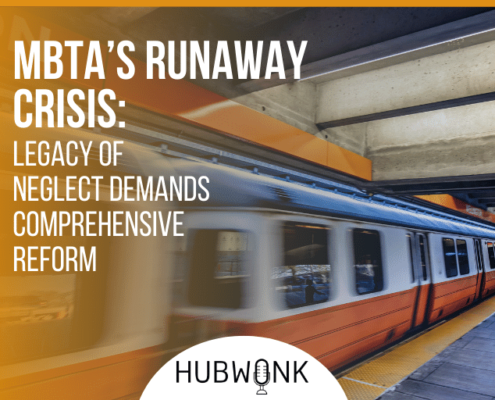
MBTA’s Runaway Crisis: Legacy of Neglect Demands Comprehensive Reform
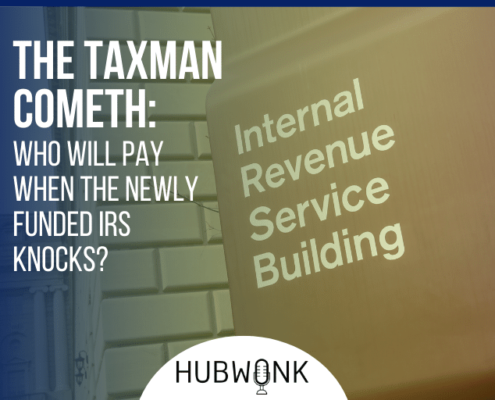
The Taxman Cometh: Who Will Pay When the Newly Funded IRS Knocks?
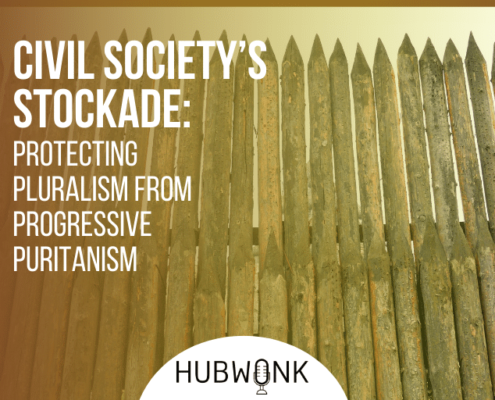
Civil Society’s Stockade: Protecting Pluralism From Progressive Puritanism

Drug Price Control: Bad Medicine for Healthcare and Region
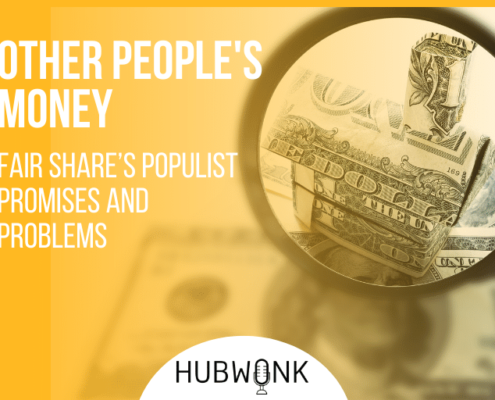
Other People’s Money: Fair Share’s Populist Promises and Problems
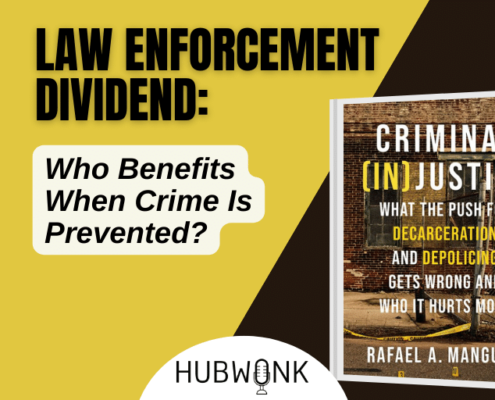
Law Enforcement Dividend: Who Benefits When Crime Is Prevented?
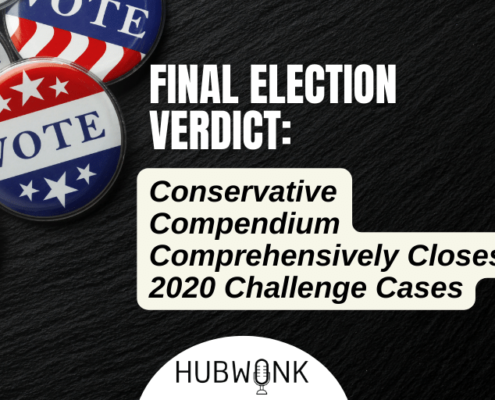
Final Election Verdict: Conservative Compendium Comprehensively Closes 2020 Challenge Cases
